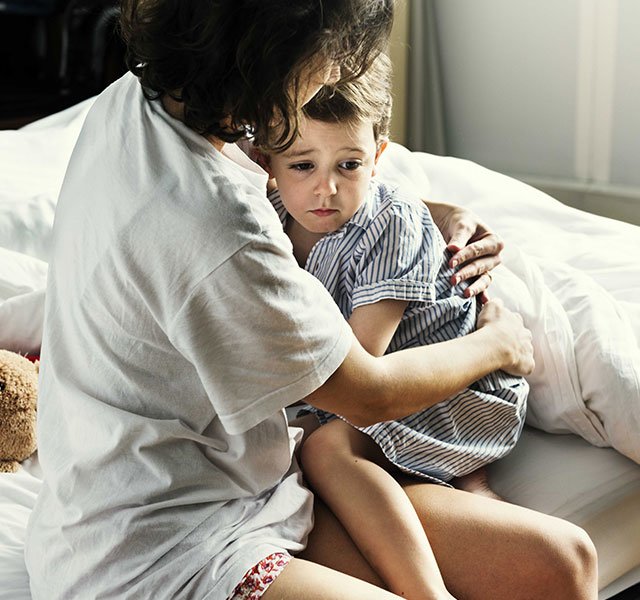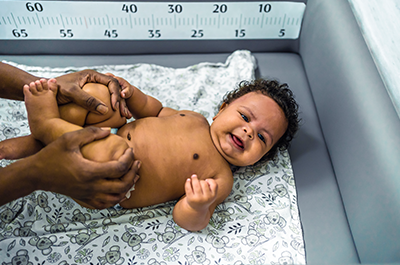If your child’s nightmares or night terrors are interrupting peaceful nights in your household, you’re not alone. According to the American Academy of Pediatrics, one in 10 parents discusses sleep-related concerns with a doctor during their child’s early years. These sleep disturbances can be troubling and scary for everyone, but they’re also a completely normal part of growing up.
Nightmares are common in children younger than 10. These frightening dreams occur during the rapid eye movement (REM) stage of sleep, which happens after your child has been asleep for hours. During this time, your child’s eyes move rapidly while the brain sorts through new information and experiences. This activity produces images that seem very real – so much so that they may scare your child awake.
Night terrors happen soon after a child falls asleep – during the deep sleep stage – and are less common but can be more disturbing. During a night terror, your child may scream out or make other noises. A hallmark of a night terror is that the child seems awake. He or she may appear sad, scared or confused. Some children even sleep walk during a night terror.
While it may be tempting to comfort your child during a night terror, he or she is in a deep sleep and likely won’t remember anything come morning. During this sleep stage, the body is hard at work growing and restoring damaged tissue, and your child is the most disconnected from the world around him or her. However, there’s no harm in being there for your child during a night terror if you wish to do so.
Though nightmares and night terrors can disrupt a whole household and make parents worry, the good news is that they’re likely causing your child no harm.
Night terrors rarely affect the quality of your child’s sleep at all. Children who fall back asleep relatively quickly after nightmares are probably getting enough shut-eye as well. In other words, most children are still getting a good night’s sleep even if they do experience occasional nightmares and night terrors.
These sleep disturbances may be a fact of life, but there’s plenty you can do to help prevent them. When parents come to me with concerns, here’s what I recommend:
- Establish healthy sleep habits such as a set bedtime – and stick to them
- Encourage your child to get plenty of physical activity during the day
- Set limits on screen time, which may include turning all screens off 30 minutes or more before bedtime
- Help your child manage stressful situations including illnesses, changes in your home life or school-related problems
- Create a safe environment for children who are prone to night terrors by removing objects that could cause fall hazards if he or she gets out of bed
- Comfort your child after a nightmare by offering a security object like a blanket or plush toy
When nightmares and night terrors do strike, take heart: Most children outgrow them by age 12. Some adolescents may have occasional nightmares when facing stressful situations, like a big test at school. If sleep problems are becoming more frequent, more severe or affecting your child during the day, talk to your pediatrician.
To find a pediatrician or family medicine doctor at Henry Ford, visit henryford.com or call 1-800-HENRYFORD (436-7936).
Stacy Leatherwood Cannon, M.D., is a board-certified pediatrician and the physician champion for childhood wellness for Henry Ford LiveWell. She sees patients at Henry Ford Medical Centers in midtown Detroit and Sterling Heights. Learn more about Dr. Leatherwood Cannon.



